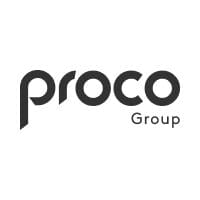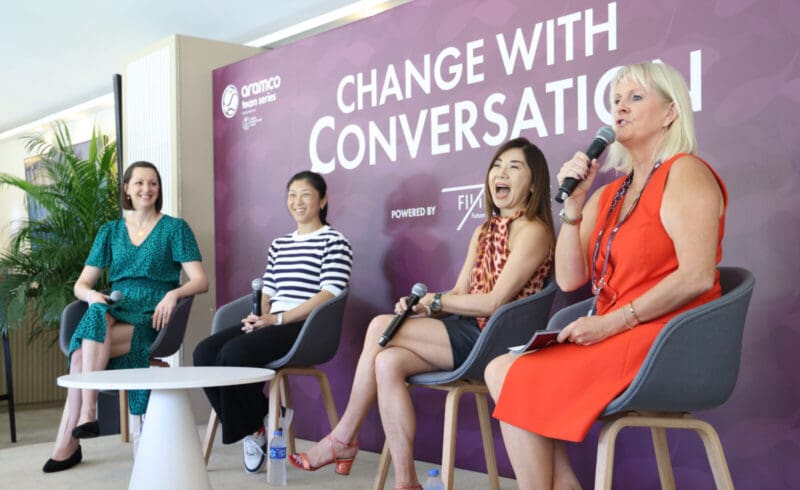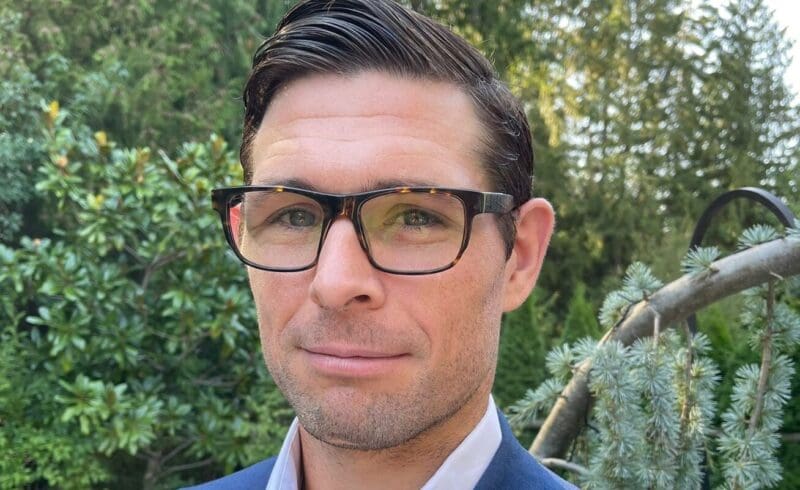The panel discussion, with Krystle Edwards, Managing Partner APAC, though centred on sports, revealed striking parallels with the business world.
In a world where male sports receive the lion’s share of funding and exposure, it’s refreshing to see thought leaders like Krystle Edwards, Proco Group Managing Partner for APAC, stepping forward to champion equity, and promoting gender equality in business.
Krystle was recently invited by the FII Institute, a global non-profit organisation with a mission to impact humanity positively, to join a panel discussion hosted at the Aramco Team Series in Hong Kong. The FII Institute operates with a focus on artificial intelligence (AI) and robotics, education, healthcare, and sustainability, and their discussions extend to diverse topics, including sports.
Krystle brings a unique perspective to the discussion, as the former President of Netball Hong Kong, China, and the most capped Hong Kong player in a sport traditionally dominated by females. In her journey, she has witnessed the commitment and sacrifices made by women’s netball to raise the profile of male netball and increase overall participation. Krystle recognises the future benefits of such efforts, demonstrating the potential for unity and shared success.
The panel discussion, though centred on sports, revealed striking parallels with the business world. As panellist Alicia Liu, founder of WISE Hong Kong, astutely pointed out, “Sport is a reflection of our society.” Here are some key takeaways from the discussion:
Equity vs. Equality
In both sports and business, the concept of equity is paramount. Equity goes beyond providing equal opportunities; it entails offering tailored support to individuals, acknowledging their unique needs, and helping them realise their full potential. In the professional realm, this raises the question: does your organisation provide a one-size-fits-all solution, or do you evaluate and offer individualised support to your teams to foster their growth?
Gender Disparity
Empowering the less dominant gender, often women, necessitates allocating at least the same, if not more, funding and support. In business, it’s essential to assess whether opportunities are distributed equitably within your organisation, or if there is a bias favouring those who have historically succeeded or resemble the leadership team. Krystle’s experience in netball administration illuminates the importance of nurturing minority groups in sports and ensuring they receive the backing they require to further develop.
Promoting Gender Equality in Business Through Role Models
Role models play a crucial role in both sports and careers. Having someone to aspire to can be a powerful motivator for individuals to pursue their dreams. Krystle’s journey from a young netball enthusiast to the most capped Hong Kong player serves as a testament to the significance of visible role models.
Funding Matters
The discussion highlighted Aramco’s commitment to gender equality, where they match investments equally in male and female sports. This commitment serves as a powerful example for other organisations. It raises a pertinent question: do your organisation’s actions align with its values and equality statements? Are you actively investing in closing gender disparities?
The Media’s Role in Promoting Gender Equality in Business
The media plays a crucial role in driving progress in women’s sports. Shifting the narrative from viewing women’s sports as a charity case to recognising their excellence is essential. A notable example is the advertisement featuring France’s women’s World Cup team by Orange, which exemplifies the respect and recognition that women’s sports rightfully deserve. In the business world, this implies that media can be a driving force for positive change, shaping public perception and encouraging gender equality in corporate settings.
In conclusion, Krystle Edwards and the FII Institute’s panel discussion have shed light on the critical intersection of sports and business when it comes to equity and gender equality. These insights emphasise the need for both spheres to commit to fostering diversity and equal opportunities, both in sports and the professional world.




